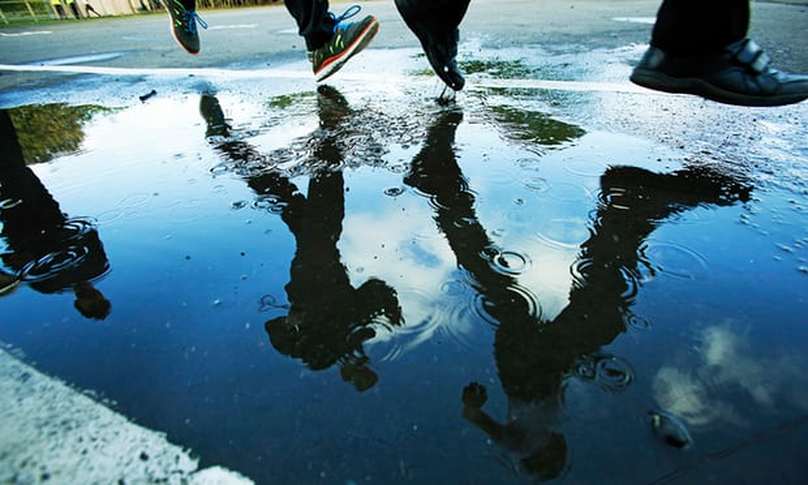|
This is a great Guardian article, published today, by Kay Holmes. I've always been interested in transitions, and as a corollary, in rites of passage. This week we have had graduations at Manchester Met, and we are starting to think about next year's intake and their transitional experiences. I'm interested in identity change - or whether identity does change with transitions in education? I'm also interested in the rituals and rites of passage that accompany transitions - in Germany, what is called 'schooling in' - as parents and children are welcomed into 'big school'. I think in HE we send out mixed messages about this. And certainly the transition to secondary school is a step for children where they are quite suddenly 'left alone'. For most secondary schools parents are positively discouraged from coming into school- a big contrast from many primaries. So what are we trying to do with transitions? Who is making the transition? And if we believe in situated and co-constructed learning then certainly secondary schools and probably HEIs need to think a bit more about how they do this - if it is the case that transitions are key in identity change, then they are of significance in determining all kinds of aspects of children's lives. And if this article is to be believed - and it certainly includes food for thought - the transitions for parents and other family members are likely to be significant in terms of identity and family dynamics.  Saying goodbye to your child’s primary school? I never knew how much I’d miss it | Kay Holmes | Opinion The little girl who once hugged me at the gates has moved on, and the change to secondary school has come as a shock ‘Most parents of year 6 children, as I know from recent experience, won’t be braced for how different their lives as parents is are about to become.’ Photograph: Murdo MacLeod for the Guardian My first day in the school playground was terrifying. Everyone else seemed to know each other. Chatting, laughing clusters of comfortable, relaxed people made connections and bonded. I decided – out of sheer defensiveness – that was not for me. I would instead enter and leave the playground untouched by human contact. No chatting, no laughing, and definitely no PTA meetings or arranging the summer fair. The parent-teacher association was all the cliches: middle class, do-gooding, ravenous for women’s free time That lasted about a week. My daughter became close friends with two girls and I followed suit with their mothers. As my child’s friendship circle expanded, so did mine. I began to bake cakes for events and tried to control my competitiveness. I lugged innumerable huge folding tables from dark corners and pinched my fingers setting them up. I ventured into the dank horror of the disco room at parties where sugar-enraged under-10s sweated out manic interpretations of Lush Life and Uptown Funk. My friend Liz and I cornered the tombola market. It involved a certain amount of maths to work out the ticket-stubs--to-prizes ratio, and a certain amount of sitting on the floor chatting while sticking prize numbers on to re-gifted condiment sets and bottles of wine. Many afternoons standing behind a trestle table in a playground selling baked goods were enlivened by the spectacular rudeness of our customers. So keen was I to prove my lack of professionalism that I met rudeness with sarcasm and once yelled after a man – who was passive-aggressively chuntering about “very expensive cakes” – that “they aren’t expensive at all sir, and this is for your children!” And against my will I was drawn into the PTA. The parent-teacher association was all the cliches you can throw at it – middle class, do-gooding, prescriptive and ravenous for women’s free time. But it raised some money, staged some joyful communal events, and tried to include everyone. And there’s the rub. This was the month of summer fairs and of farewells. Most parents of year 6 children are now facing the last day of primary school, but they will also be throwing their thoughts and worries forward. What they won’t be, as I know from recent experience, is in any way braced for how different their lives as parents are about to become. The little girl who used to hold hands with me all the way to school and hug me fiercely in the playground is now a year 7 who salutes me cordially some distance from the train she takes with her friends to a school in a different part of the city. After wandering fairly freely through her primary school on PTA business, I couldn’t enter her secondary school if I wanted to because there’s a guard at the gate. He’s very nice, but holding a Victoria sponge and mumbling about raffle tickets is going to butter no parsnips with him. Misanthropic me should be pleased not to be rubbing shoulders with other parents at drop-off. And – full disclosure – it is a relief. But it’s a shock to discover how suddenly school becomes none of your business. For children, it’s the first stage of preparation for the adult world. The separation is natural and right and has to happen. So I hope those parents paused to enjoy the dreaded summer cake sale – and revelled in the arguments over whether or not to have a bouncy castle, or buying versus renting a popcorn machine. Things will change fast: you’re one summer away from a different world that even a diehard curmudgeon can acknowledge is a bittersweet experience. • Kay Holmes is a freelance writer
0 Comments
Leave a Reply. |
About me...
I was a psychology and social sciences teacher for many years and now I am in the throes of a leadership, teaching and research career in HE. I care passionately about education. This blog will show you why and how.
Categories
All
Archives
March 2023
|

 RSS Feed
RSS Feed